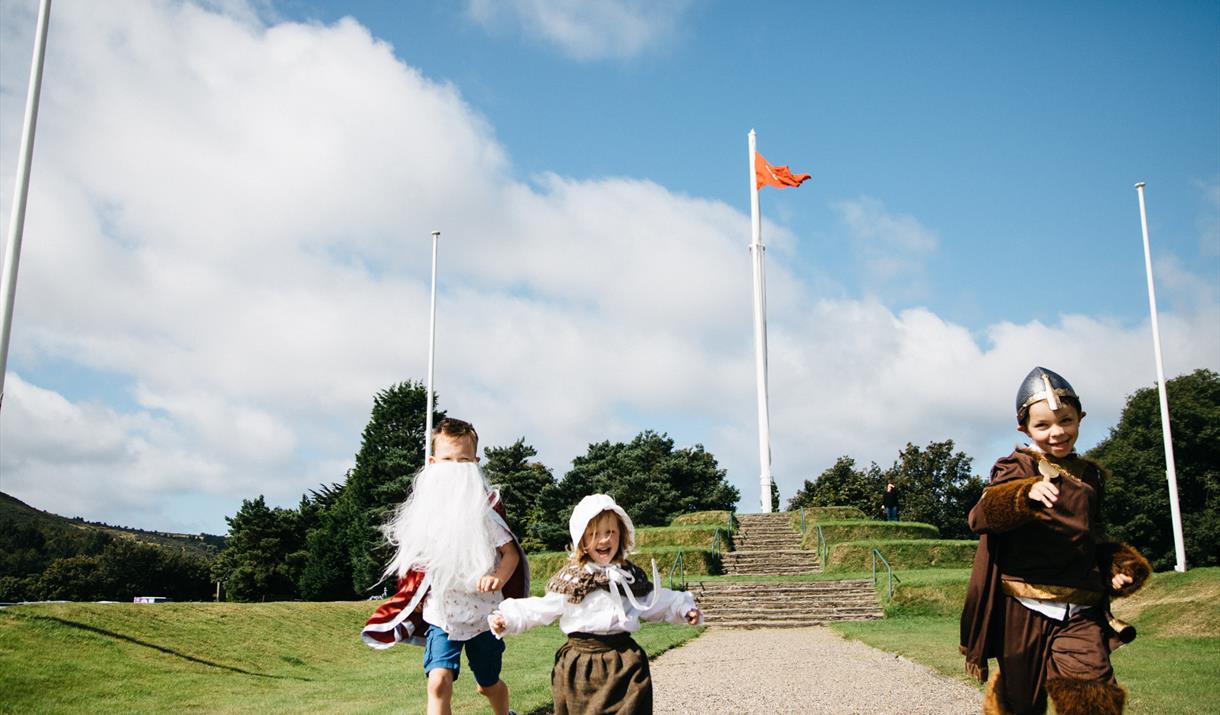About
This four-tiered hill is one of the Island’s most distinctive landmarks and a signal of the Isle of Man’s independence as a self-governing crown dependency.
Tynwald Hill, which is located in St Johns, plays host to an open air meeting of the Island’s parliament, Tynwald, once a year. It is believed that the open air ceremony, which takes place on July 5th, was established by Norse Viking settlers over a thousand years ago with the hill thought to have been built in the 13th century, making it the oldest continuous parliament in the world.
The hill, which measures around 12 feet high, is thought to be made from piles of stones bonded together with soil from all of the Island’s 17 ancient parishes.
Ancient graves have been also uncovered near the hill and a temple dedicated to the Norse god Thor was found near to the site of St John’s Church.
Tynwald Hill is a registered Thing site which encompasses ancient Viking sites that are the early assemblies found throughout Northern Europe as a result of our shared Norse heritage.
Called Things from the Old Norse þing, these sites are places of early attempts by the Vikings to introduce a representative system that allowed disputes to be settled peacefully and such was its success, this system was brought from the Scandinavian homelands to Viking colonies throughout Northern Europe, including Tynwald.
Nowadays, these sites can be found throughout various parts of Europe, most of which can be identified by their thing, ting, ding or fing place names. Other Thing sites include Gulating (Norway), Tingwalla (Sweden), Þingvellir (Iceland), Tinganes (Faroe Islands), Tingwall (Shetland and Orkney), Dingwall (Scotland), and Fingay Hill (England).
Facilities
Parking & Transport
- Parking (free)
Provider Facilities
- Toilets
Provider Features
- Outdoor Attraction
- Village Location











